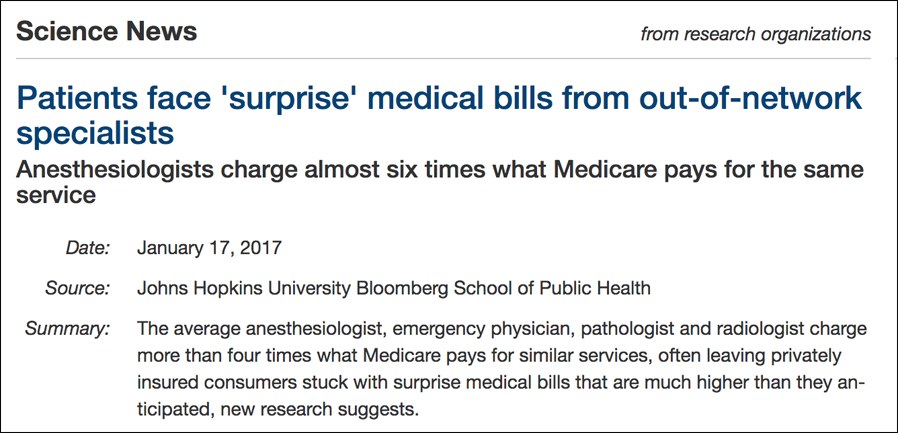Medicare Rates

Why Medicare Rates Don’t Work for Non-Medicare Patients
Medicare is a broken system. Any insurance company that tries to benchmark its medical payments to Medicare is deliberately underpaying hospitals and doctors. And sticking you with the unpaid balance bill.
Here is an example of how the out-of-network debate has been shaped in recent years.

This article, as with others like it, assumes that Medicare is a fair and accepted standard for reimbursing medical care. Consequently, any provider who charges more than Medicare is engaged in “markups” or “price-gouging.”
In reality, Medicare reimbursements are appallingly low.
Medicare typically pays hospitals only 93% of what it costs the hospital to provide that care. Hospitals must make up the difference through other insurance payers, or go out of business.
For specialists, such as neurosurgeons, the situation is worse – Medicare pays as little as 5-10% of charges. Relying on Medicare payments, a typical neurosurgeon would have to operate for half the year to earn enough to pay malpractice premiums. The remaining six months of work would not come close to covering other overhead expenses, such as payroll and rent.
That is why over 50% of orthopedic specialists in New York refuse to accept Medicare. In Texas, 42% of all physicians no longer treat Medicare patients.
Most people do not realize this. They do not understand that Medicare is a broken system. Any insurance company that tries to benchmark its medical payments to Medicare is deliberately underpaying hospitals and doctors. And sticking you with the unpaid balance bill.
So, the next time you read an article about outrageous doctor charges that are several times Medicare, ask yourself: What is more shocking, that the doctor charges more than Medicare, or that Medicare pays your doctor less for saving a human life than your monthly wireless phone bill.